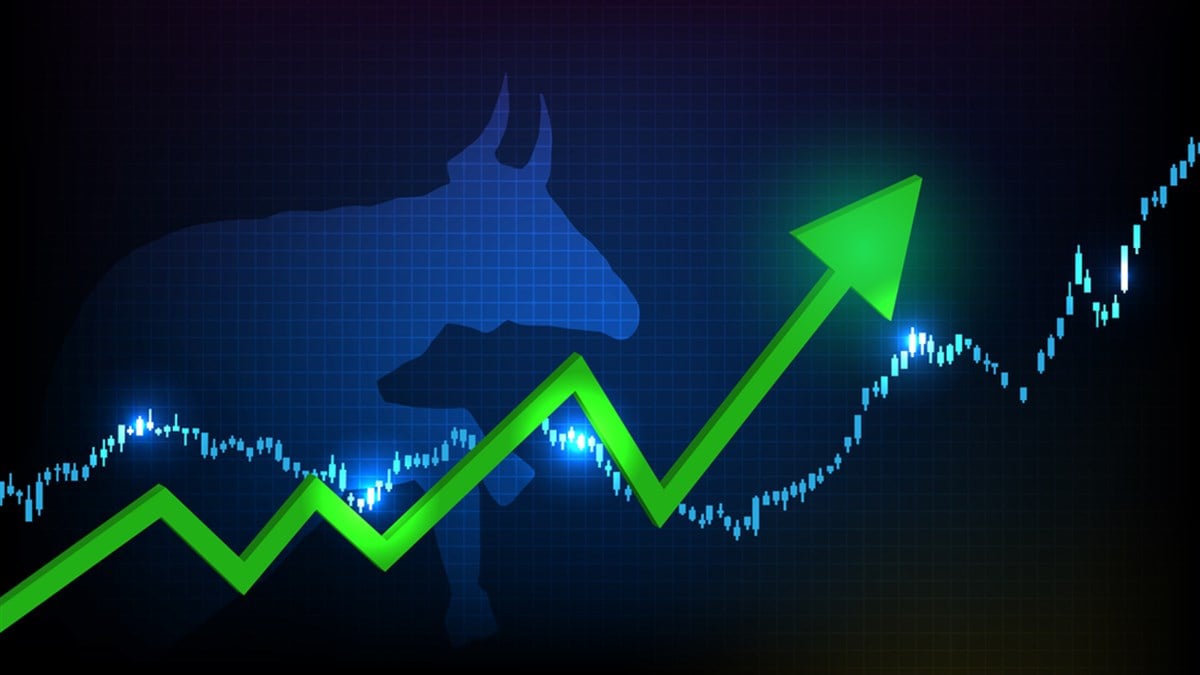
In the past week, the rally in the Technology Select Sector SPDR Fund (NYSEARCA: XLK) has faltered as many leading stocks have been trading off their previous highs, or have posted small gains.
It appears the tech rally may be running out of steam. That’s not to say big tech is about to lead S&P 500 stocks into a significant correction; earnings estimates for the sector as well as the S&P 500 as a whole are upbeat.
But even with outstanding fundamentals and the tremendous potential for artificial intelligence stocks, the broad equity market can and does develop signs of exhaustion after a long run-up.
The most heavily weighted techs and their one-week returns are:
Microsoft Corp. (NASDAQ: MSFT): +3.93%
Apple Inc. (NASDAQ: AAPL): +2.37%
Nvidia Corp. (NASDAQ: NVDA): -5.10%
Broadcom Inc. (NASDAQ: AVGO): -10.29%
Advanced Micro Devices Inc. (NASDAQ: AMD): -11.51%
In addition, top communications services stock Meta Platforms Inc. (NASDAQ: META) is down 3.98% for the week.
Nvidia Stock: Above-Average Downside Trade
Even though Nvidia isn’t the biggest tech in terms of market cap, with that honor going to Microsoft, it’s clearly the bellwether for industry performance.
The Nvidia chart shows the stock trading lower in four of the past five sessions, with downside volume coming in heavier than normal in five of the past six sessions.
As heavy-volume selling picks up in a leading stock, it’s often a sign that investors are taking the opportunity to pocket some profits.
Is the S&P 500 Ready for a Pullback?
Since the end of October, the S&P 500 has returned 22%. That’s right around the level where rallies start to run out of steam, and retreat into a correction.
That’s a fast rally in a fairly short amount of time, meaning a lot of capital has been deployed rapidly.
The SPY ETF gapped down 0.99% in heavy volume on March 15, as investors fretted that sticky inflation had returned, after previous optimism.
The S&P 500 is now perched nearly 12% above its 200-day moving average. It’s been trading above that line since early November, with valuations currently looking stretched.
According to data from Yardeni Research, the S&P 500’s forward price-to-earnings ratio is 20.5. It’s been rising since 2022.
Bearish Chart Action
The S&P 500 posted the same recent results as Nvidia, with losses in four of the past five sessions, as of March 15. In addition, it’s been falling on no particular economic or corporate news. That’s often a sign of buyers’ exhaustion.
Plenty of investors and traders took notice of Nvidia’s price action on March 8, when the stock gapped up at the open and rallied to a new high, before buyers stepped in, sending Nvidia shares to a decline of 5.55% for the session. Volume was more than triple the average.
In fact, the intraday price swing was more than 10%. It’s not that Nvidia’s performance that day, or in the sessions since, indicates a meltdown is near, or that a market collapse is around the corner.
However, it does show that savvy investors might consider taking some profits at this juncture.
More Selling Ahead?
If sellers have the momentum in Nvidia, Meta Platforms, and leading AI chip stocks like AMD and Broadcom, the market could be in for a further bout of downside trade.
Broad market selling can trigger a domino effect; when investors see widespread selling, fear and uncertainty escalate, prompting more to sell to mitigate losses.
This mass selling pressure can cause stock prices to plummet rapidly, eroding market confidence.
Additionally, algorithmic trading programs, designed to exploit market trends, exacerbate the situation by automatically selling when predefined conditions are met, further intensifying the selling spree.
None of this is to say a complete market meltdown is on the horizon; the broad-market fundamentals still appear strong. However, for those who prefer to trade tactically versus holding for the long haul, there could be some signs of trouble.



